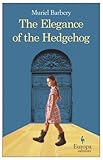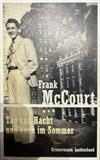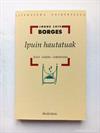
The Elegance of the Hedgehog
2 journalers for this copy...
I thought this was a wonderful book. I'll admit that at times the philosophy was a bit too deep for me but the story itself made for delightful reading. I'd love to say more but I don't want to ruin the book for other readers.
From the flap:
We are in an elegant hotel particulier in the center of Paris. Renee, the building's concierge, is short, ugly, and plump. She has bunions on her feet. She is cantankerous and addicted to television soaps. Her only genuine attachment is to her cat, Leo. In short, she is everything society expects from a concierge at a bourgeois building in a posh Parisian neighborhood. But Renee has a secret: she is a ferocious autodidact who furtively devours art, philosophy, music, and Japanese culture. With biting humor she scrutinizes the lives of the building's tenants-her inferiors in every way except that of material wealth.
Then there's Paloma, a super-smart twelve-year-old and the youngest daughter of the Josses, who live on the fifth floor. Talented, precocious, and startlingly lucid, she has come to terms with life's seeming futility and has decided to end her won on the day of her thirteenth birthday. Until then she will continue hiding her extraordinary intelligence behind a mask of mediocrity, acting the part of an average pre-teen high on pop subculture, a good but not an outstanding student, an obedient if obstinate daughter.
Paloma and Renee hide both their true talents and their finest qualities from a world they suspect cannot or will not appreciate them. They discover their kindred souls when a new tenant arrives, a wealthy Japanese man named Ozu.
From the flap:
We are in an elegant hotel particulier in the center of Paris. Renee, the building's concierge, is short, ugly, and plump. She has bunions on her feet. She is cantankerous and addicted to television soaps. Her only genuine attachment is to her cat, Leo. In short, she is everything society expects from a concierge at a bourgeois building in a posh Parisian neighborhood. But Renee has a secret: she is a ferocious autodidact who furtively devours art, philosophy, music, and Japanese culture. With biting humor she scrutinizes the lives of the building's tenants-her inferiors in every way except that of material wealth.
Then there's Paloma, a super-smart twelve-year-old and the youngest daughter of the Josses, who live on the fifth floor. Talented, precocious, and startlingly lucid, she has come to terms with life's seeming futility and has decided to end her won on the day of her thirteenth birthday. Until then she will continue hiding her extraordinary intelligence behind a mask of mediocrity, acting the part of an average pre-teen high on pop subculture, a good but not an outstanding student, an obedient if obstinate daughter.
Paloma and Renee hide both their true talents and their finest qualities from a world they suspect cannot or will not appreciate them. They discover their kindred souls when a new tenant arrives, a wealthy Japanese man named Ozu.
There is no way you read this book before sending it to me! It's in MINT condition! There is not even a hint of "bend" in the spine!
That said, thanks for sharing it with me, since my SIL has been talking about it for about 2 years :)
That said, thanks for sharing it with me, since my SIL has been talking about it for about 2 years :)
So here's a first: I didn't like the ending but I still liked the book! I don't know that that has ever happened before. Perhaps because it was so abrupt; I'm not sure. I SMSd my sister-in-law after I finished it and said, "shocking ending to Hedgehog Elegance!" Her reply: "Yes, very French." Which -- duh -- explained it all.
This was such an interesting book for me! In the beginning, I really liked it. Then during the middle third, I was sort of "meh" on it. I also realized it's one of those books that can't be read a page or 2 at a time. It needs to be enjoyed in large chunks of time (which is probably why I was meh on the middle-ish part). Then I started liking it again -- a lot, and then it was over and I wanted it to keep going.
Every few chapters are in the voice of the voice of Renee, the concierge of a French apartment building, and the other chapters are in the voice of Paloma, one of the 12-year old inhabitants. For part of the book, I was more interested in the Renee chapters, and for part I was more interested in Paloma. Kind of odd, I thought.
I'm not sure how I feel about a current book that is so much about "how a specific type of person should act", honestly. Certainly 20 or more years ago, I'd have understood it better, but I must admit confusion at Renee's feeling that she needs to look and act a certain way, because that is what Parisians expect of their concierges. That aside, it was really interesting that there in the midst of the social and academic elite, the concierge of their building was better read, more aware of art, and music, and film, than probably most of the people in the building for whom she "concierged".
I thought the author did a great job on both "voices". I believe her when she was writing as Paloma, and I believed her when she was Renee.
I also really liked the way Paloma's mind worked: The problem is that children believe what adults say and, once they're adults themselves, they exact their revenge by deceiving their own children. "Life has meaning and we grown-ups know what it is" is the universal lie that everyone is supposed to believe. Once you become an adult and you realize that's not true, it's too late. The mystery remains intact, but all your available energy has long ago been wasted on stupid things.
When people are discussing a book they've read that was translated from the original language and they make a comment about it being a "bad translation", I used to assume that that meant that they had read the book in its original language, and then the translated one. It never occurred to me that you might be able to tell it was a bad translation just by reading it. That said, I think this is a great translation. However, there were some things in it that just didn't ring true with me. Like this (nonetheless entertaining) description about Paloma's dad watching rugby:
Another passage I marked was when Renee gets real attention by a teacher at school. It's just beautiful and thoughtful writing. It's as if she'd never even been called by the name her parents had given her before:
I wasn't totally sure how I felt about Renee until I found in her a kindred spirit:
I have so many more spots in this book marked! I think I'll start culling and note that I loved loved loved the part about grammar and Renee's reaction to the note that said
That the horribly out of place comma made her "collapse in shock on the nearest chair [and wonder if she'd gone mad]" made me love her more. But this -- from Paloma -- made me love the author more: "And on the way home I thought: pity the poor in spirit who know neither the enchantment nor the beauty of language."
I wanted a whole book on Monsieur Ozu, mostly because of this comment from Paloma about him: "So here is my profound thought for the day: this is the first time I have met someone who seeks out people and who sees beyond. That may seem trivial but I think it is profound all the same. We never look beyond our assumptions and, what's worse, we have given up trying to meet others; we just meet ourselves."
This book isn't for everyone, and I don't want to spoil it by saying more than I already have, but I loved it. Those who are well-read or well-travelled or like books that make them think will like this. It's the kind of book I want to read again, soon, so I'll probably hang on to it for a while. Thanks, alrescate, for sharing your copy with me!
And also? "autodidact" didn't mean what I thought it meant. Fun to look it up and learn something new.
This was such an interesting book for me! In the beginning, I really liked it. Then during the middle third, I was sort of "meh" on it. I also realized it's one of those books that can't be read a page or 2 at a time. It needs to be enjoyed in large chunks of time (which is probably why I was meh on the middle-ish part). Then I started liking it again -- a lot, and then it was over and I wanted it to keep going.
Every few chapters are in the voice of the voice of Renee, the concierge of a French apartment building, and the other chapters are in the voice of Paloma, one of the 12-year old inhabitants. For part of the book, I was more interested in the Renee chapters, and for part I was more interested in Paloma. Kind of odd, I thought.
I'm not sure how I feel about a current book that is so much about "how a specific type of person should act", honestly. Certainly 20 or more years ago, I'd have understood it better, but I must admit confusion at Renee's feeling that she needs to look and act a certain way, because that is what Parisians expect of their concierges. That aside, it was really interesting that there in the midst of the social and academic elite, the concierge of their building was better read, more aware of art, and music, and film, than probably most of the people in the building for whom she "concierged".
I thought the author did a great job on both "voices". I believe her when she was writing as Paloma, and I believed her when she was Renee.
I also really liked the way Paloma's mind worked: The problem is that children believe what adults say and, once they're adults themselves, they exact their revenge by deceiving their own children. "Life has meaning and we grown-ups know what it is" is the universal lie that everyone is supposed to believe. Once you become an adult and you realize that's not true, it's too late. The mystery remains intact, but all your available energy has long ago been wasted on stupid things.
When people are discussing a book they've read that was translated from the original language and they make a comment about it being a "bad translation", I used to assume that that meant that they had read the book in its original language, and then the translated one. It never occurred to me that you might be able to tell it was a bad translation just by reading it. That said, I think this is a great translation. However, there were some things in it that just didn't ring true with me. Like this (nonetheless entertaining) description about Paloma's dad watching rugby:
I like to watch him roll up his shirtsleeves, take his shoes off and settle on the sofa with a beer and some salami, as though declaring, "Behold the man I also know how to be." Apparently it doesn't occur to him that one stereotype (very serious Minister of the Republic) plus another stereotype (Mr.-Nice-Guy-all-the-same who likes his cold beer) makes a stereotype raised to the power of two.I get it, and can see the dad, and very much appreciate what she's saying. But the whole time I'm reading it, I'm thinking, "European men don't drink beer cold. That's for Americans." And then I know that the translator is an American. (total off-topic sidenote here: I liked the passage about the dad watching rugby more because we just recently watched the movie "Invictus")
Another passage I marked was when Renee gets real attention by a teacher at school. It's just beautiful and thoughtful writing. It's as if she'd never even been called by the name her parents had given her before:
We are mistaken to believe that our consciousness is awakened at the moment of our first birth - perhaps because we do not know how to imagine any other living state. It may seem to us that we have always seen and felt and, armed with this belief, we identify our entry into the world as the decisive instant where consciousness is born. The fact that for five years a little girl called Renee, a perfectly operational machine of perception blessed with sight, hearing, smell, taste and touch, could have lived in a state of utter unawareness both of herself and of the univers, is proof if any were needed that such a hasty theory is wrong. For in order for consciousness to be aroused, it must have a name.
I wasn't totally sure how I felt about Renee until I found in her a kindred spirit:
But my frenzied devouring of cultural objects seems to me to suffer from a major error of taste: brutally mixing respectable works with others that are far less so.I love that "The Hunt for Red October" is a meaningful film to her. It's the first movie I ever saw in surround sound, and I loved it. Her note "all you need is Sean Connery in the uniform of a Russian submarine officer and a few well-placed aircraft carriers" made me shout, "Comrade!"
It is most certainly in the domain of reading that my eclecticism is least pronounced, though even there the variety of my interests is most extreme. ...
Where the cinema is concerned, however, my eclecticism is in full flower. I like American blockbusters and art-house films. In fact, for a long time I preferred to watch entertaining British or American films, with the exception of a few serious works that I reserved for my esthetic sensibilities. ... I weep buckets of syrupy tears every time Melly and Mammy climb the stairway at the Butler mansion after Bonnie Blue dies; as for Blade Runner, it is a masterpiece of high-end escapism. For years my inevitable conclusion has been that films of the seventh art are beautiful, powerful and soporific, and that blockbuster movies are pointless, very moving, and immensely satisfying.
I have so many more spots in this book marked! I think I'll start culling and note that I loved loved loved the part about grammar and Renee's reaction to the note that said
Madame Michel,
Would you be so kind as, to sign for the packages
from the dry cleaner's this afternoon?
That the horribly out of place comma made her "collapse in shock on the nearest chair [and wonder if she'd gone mad]" made me love her more. But this -- from Paloma -- made me love the author more: "And on the way home I thought: pity the poor in spirit who know neither the enchantment nor the beauty of language."
I wanted a whole book on Monsieur Ozu, mostly because of this comment from Paloma about him: "So here is my profound thought for the day: this is the first time I have met someone who seeks out people and who sees beyond. That may seem trivial but I think it is profound all the same. We never look beyond our assumptions and, what's worse, we have given up trying to meet others; we just meet ourselves."
This book isn't for everyone, and I don't want to spoil it by saying more than I already have, but I loved it. Those who are well-read or well-travelled or like books that make them think will like this. It's the kind of book I want to read again, soon, so I'll probably hang on to it for a while. Thanks, alrescate, for sharing your copy with me!
And also? "autodidact" didn't mean what I thought it meant. Fun to look it up and learn something new.







